Long live Mexican brands! Long live Mexico!
September is considered the month of the country because, as we well know, important events linked to the struggle for freedom coincided: the defense of Chapultepec Castle by the Children Heroes (September 13, 1847) and the start of the War of Independence (September 16, 1810).
These commemorations usually impact the identity of all Mexicans in their maximum expression, however, since 2020, due to sanitary conditions, these celebrations were experienced in an atypical way, according to Kantar estimates, approximately 84 percent of Mexicans would celebrate at home and only 2 percent planned to leave their homes.
It is relevant that the National Alliance of Small Merchants (ANPEC), estimated that at home people would spend a minimum average of $4,068 pesos, which is equivalent to a higher expense of between 12 and 15 percent, compared to the previous year. Social distancing has transformed coexistence and the way of socializing, work and leisure activities have become hybrid among other transcendent changes.
According to the investigation of the "Barometer COVID 19", 25 percent of Mexicans increased their hygiene measures, another finding is that Mexico is the second country where people spend more time at home with the family (30 percent ), 26 percent continue to work from home, while 25 percent of them prefer to lead a healthy life by exercising from home, while 23 percent of Mexicans have preferred to take care of their diet and eat healthier.
Long live Mexican brands! Long live Mexico!
Because everything made in Mexico is well done, we have decided to pay this tribute to iconic brands with Mexican roots, that cultivate our fields, that bring the best of their products to our cupboards and refrigerators, that have crossed borders, that have positioned themselves in various rankings as the best in its category.
Mexican brands that are a benchmark of our culture, that have credentials that make us feel proud of our nation, Mexican brands recognized in other continents, that have become a destination, a benchmark of a culture of customer service, of putting the center to the consumer, to protect ourselves, to exalt our talents, with the construction of great companies that started from scratch.
And it is that a brand identity is the collection of all the elements that a company creates to show the correct image to its consumer. The design, the colors of its logo are some of the components that help make the brand highly recognizable, however, a solid, unique and integrated brand has a responsibility to promote values, share a vision and these brands were born from Mexico to Mexico and the world.
CROWN
“The best-selling Mexican beer in the world since 1925”, are the credentials of Corona, a brand that began to be produced in Mexico and almost a century later continues to be produced here. Present in more than 180 countries and known worldwide for its lime ritual, it is the #1 imported premium beer in more than 45 countries.
Its branding construction responds to "take a Crown and become a king", it is the premise of why its name. The colors of the label are inspired by the yellow of the sun and the blue of the sea. And the Griffin is the sacred creature of the Sun, body of a lion and head of an eagle, the guardian of each bottle of this iconic beer.
WHITE CARD
"More than 130 years of brewing excellence" are what make up the legacy of this unique Mexican brand since 1980, when its founders created an iconic beer and with it an entire brewing industry. Its name is linked to freedom, which has led it to conquer the most demanding consumers, even being chosen by the Kings of Spain for its consumption.
Inventor of the Loggerhead, she has received nine international awards, including the Star of Excellence in Paris and the Gold Medal in Munich.
As technology advances by leaps and bounds and, while the first email is being sent in the world, Carta Blanca, in the period between 1968 and 1990, launched the Quitapon and in that same fraction of time it won 7 prizes in 6 countries. , including Belgium, England and Italy.
Today, faithful to its origin and values, it continues to speak to honest, open and authentic people, writing its history guaranteeing Carte blanche in the taste of consumers, promising that “There is North for Everyone”.
DON JULY TEQUILA
The history of this brand began in 1942, when Don Julio González had the vision to produce his own tequila. According to the brand's official communication, Don Julio, at 17 years old, did not have many resources, but what he did have was passion. So he shared his vision with a powerful local businessman and got a loan to create his first tequila distillery.
And it was this passion for excellence that inspired the creation of the world's first luxury tequila, which was named "Don Julio" in 1987. Don Julio González revolutionized the world of tequila by prioritizing quality over quantity, carefully planting each agave in an ideal space to grow and mature before being harvested. He selected only the juiciest portions of the pineapple, and then steamed them for 72 hours.
When it came time to bottle his creation, he broke away from generations of traditionally tall tequila bottles, often hidden under tables. He knew that his new liquor didn't have to hide on the floor, so he designed a lower bottle of tequila, so that his guests could pass it around the table and not prevent them from seeing each other.
Between 1995 and 1996 the Blanco, Alejo and Real classes were created. In 2002 Don Julio 1942 was produced and in 2012 the first Cristalino tequila was launched worldwide.
JOSE CUERVO
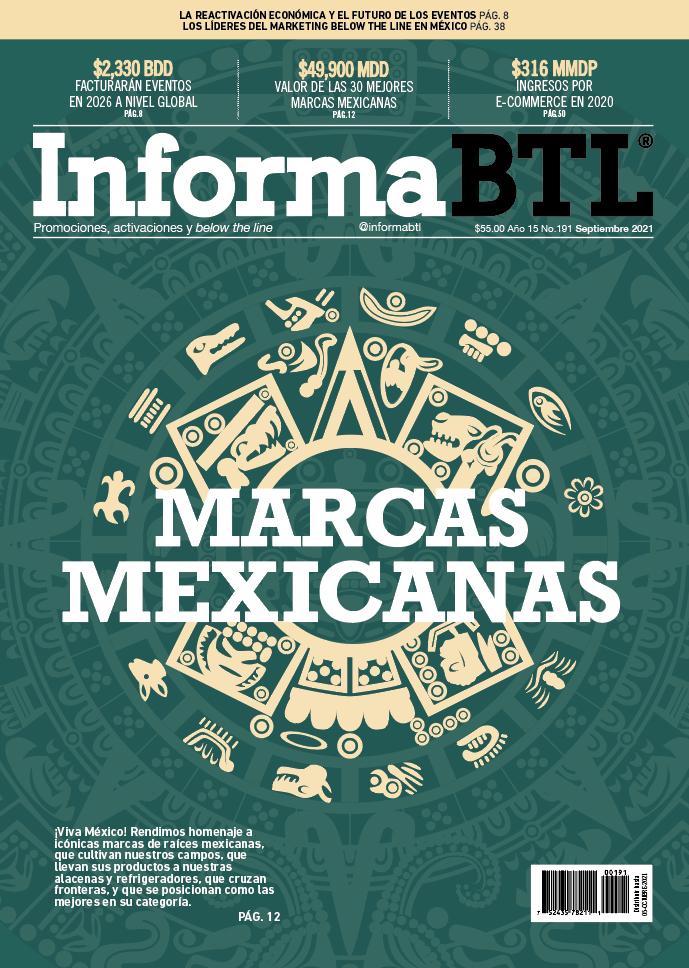
Don José Antonio de Cuervo y Valdés was the founder of Casa Cuervo. The history of this brand has its origin in 1758, when it obtained the title of Land Ownership, whose main activity was the cultivation of agave. In this way it is verified that this was the year in which the cultivation of what years later would be Casa Cuervo and a traditional tequila in Mexico began.
It was in 1795 that José María Guadalupe de Cuervo y Montaño obtained the first license to produce and distribute tequila. This year is considered the birth of the long tradition of José Cuervo Tequila, this was the beginning of the history of the best and most popular tequilas in Mexico.
In 1812 the “Rojeña” was born, hacienda and distillery, which by 1842 began to stand out with a production that reached 400 barrels per week and today it is the oldest distillery in America. In 1903, the name José Cuervo was registered as a trademark, which promoted its expansion both in Mexico and abroad.
UNESCO inscribes the Agave Landscape and the old tequila industrial facilities as World Heritage for 2006 and currently the agave fields and Casa Cuervo's agro-industrial technology are taken as a model for other producers in the industry.
THE PARISH OF VERACRUZ
“More than 90 years in the history of Veracruz”, with the philosophy that coffee tastes amazing when it is made ethically, sustainably and with care. The Parroquia de Veracruz is one of the most beloved brands in our country since 1926. For many it is part of their lives and a place of experiences, flavors and enjoyment.
Its purpose has been to position itself as ambassadors of the best of Veracruz: its people, its food and its coffee, conducting a correct, responsible and supportive business. Its history began in front of the Parroquia de la Asunción, current Cathedral of Veracruz. And today it has 32 branches, a coffee marketer and its own farms.
Since then, the Parish has been a landmark, not only in Veracruz, but throughout Mexico; and it is the meeting point for everyone: politicians, workers, sailors, fishermen, settlers and merchants; where they meet to enjoy the wonderful coffee grown in the region, and the exquisite food. Its franchisees are allies in a sustainable, ethical and profitable business vision and build long-term relationships that are models of success.
“THE JAROCHO” COFFEE
“Coffee, flavor and aroma of Coyoacán since 1953”, this iconic brand emerged when Gil Romero and Bertha Paredes opened a small store on Aguayo street where seeds, grains and fruits brought from Veracruz were sold. The business vision of this family was that coffee bars were needed, since at that time people carried cylinders full of coffee on their backs to sell to pedestrians.
Thanks to the fact that since its origins there were no high-production coffee machines, El Jarocho produces pot coffee, black coffee and artisanal coffee with milk. Over time, it began to make more specialized drinks such as Café Express, Cappuccino and Americano.
I want to buy a watermelon but I have no idea how to cut a watermelon someone help
— nickel Tue Jul 20 14:40:35 +0000 2021
Its popularity has led its ten branches to sell more than 5,000 drinks per weekend. And currently they not only have coffee drinks, but also chocolate, donuts, artisan pancakes, in addition to their famous chipotle pepper marinated leg cakes.
POTZOLLCALLI
"Potzolcalli was born on September 15, 1972 to the rhythm of mariachis", more ad hoc to this special of Mexican brands, impossible! The beginnings of this iconic restaurant date back to the 1970s, when a couple of young students and workers from the Merced neighborhood identified the need to offer a comfortable and safe place to taste a good plate of pozole, which at that time was an undervalued dish that was sold only in markets and diners.
According to the history of this brand, those young people took on the task of searching for the best pozole recipe throughout the Mexican Republic and it was in Iguala, Guerrero, where they found a wide variety of recipes for this exquisite pre-Hispanic soup. With the intention of not losing the original seasoning, chefs from Guerrero were hired to open the first unit of Grupo Potzollcalli in 1972 on Xola Avenue No.32 in Colonia Alamos.
Over time, other representative dishes of Mexican cuisine were incorporated into its menu, such as tacos and mole, which have also managed to position themselves in consumer preferences. In addition to the fact that the quality of their service and food allowed the development and consolidation of the Potzollcalli brand, allowing them to open a greater number of restaurants.
Currently this brand is spearheading the rescue of traditional Mexican cuisine since part of its philosophy is the use of original ingredients. And today they have 15 branches in the country's capital and 9 in the State of Mexico.
TOÑO'S HOUSE
"1986 from the hallway of his house", this is how this brand is presented and that is how it was: the history of one of the most famous restaurants in Mexico has its beginnings when a hypocoristic Mexican "Toño" at the age of 18 undertook a business of traditional dishes from the entrance hall of his house on Floresta Street, Colonia Clavería, CDMX.
The food was prepared by Aurora (a woman close to the family) and by Toño's mother, for this reason the business was known as "Las dos poblanas" and soon conquered the palates of its guests for the flavor of "homemade food", however, the growing popularity led them to rent a small place two blocks from their house and with this Toño decided to abandon his law degree to dedicate himself to Mexican food.
On one occasion, a customer suggested "we all say 'let's go to Toño's house', why don't you call the restaurant that?" so it was. It is relevant that the formula for success in this business is customer service, since its service personnel undergo rigorous training that prepares them to move at unusual speeds and avoid the food trays of the rest of the waiters who work with them. an agility like “ants”.
On a weekend, its more than 54 branches serve between 2,000 and 2,500 people per day.
PEÑAFIEL MINERAL WATER
The history of this iconic Mexican brand, which has been part of the Keuring Dr. Pepper portfolio since 2018, is linked to the company founded by José María Crespo de la Vega and Carlos Silva in 1928. It was established as Manantiales de Tehuacán, SA de CV , although 20 years later it changed its name to Manantiales Peñafiel SA
The history of this brand goes hand in hand with the history of Tehuacán, Puebla. The mineral water springs of the region were not so well known until this brand and its presence throughout the Mexican Republic catapulted its fame and recognition.
The 150 distribution centers and more than 25,000 employees make Grupo Peñafiel a benchmark on the tables of Mexican consumers. It is currently the number three carbonated beverage company in the country.
BOING
The company Pascual SA was founded at the end of 1930 by Rafael Víctor Pérez Zamudio, being the first products to be launched on the market: popsicles, later bottled water and finally Pascual soft drinks. The first facilities were located in the Anáhuac neighborhood, later in the San Rafael neighborhood and later in the Tránsito neighborhood of Mexico City.
By the 50's the company already had commercial stability, advertising itself with the slogan "the fruit in its soft drink", at that time people were already beginning to identify Pato Pascual, at the same time that the Lulú soft drink was released and also Mexicola, the latter was a drink that remained on the market for a very short time due to a problem with its supplier of glass bottles.
By 1960 the company had already expanded throughout Mexico and into foreign territory in the United States and Japan. It was at that time that the Boing drink was launched, which, unlike the rest of Pascual's products, does not contain gas.
In 1985 after declaring bankruptcy, the workers acquired it and created the Pascual Workers' Cooperative. In 2007 Pato Pascual changes his image after Disney claimed the similarity of the image of Donald Duck with that of Pato Pascual.
Currently, Boing stands out for being a Socially Responsible Company and being one of the favorites in the consumption of fruit nectar.
ROME DETERGENT
With more than 101 years of existence, La Corona Soap Factory offers products of the highest quality at fair prices. According to your website, your best advertisement is the opinion and experience of your consumers.
Roma Detergent is one of the company's iconic brands, although they also produce other products such as Zote laundry soap, Rosa Venus toilet soap and Foca detergent, which are among the most recognized by the Mexican consumer.
Until this year, they have distribution warehouses in more than 17 states of the Mexican Republic that cover the national territory. In 1986 they began exporting their products to North America, the Caribbean and to Central and South America.
PINOL
PINOL is a registered trademark of Grupo AlEn, this group began operations in Monterrey, Nuevo León, Mexico in 1949. According to its website, the first products launched on the market by Grupo AlEn were CLORALEX laundry bleach and PINOL cleaner, which were quickly became products synonymous with high quality and brands recognized by all Mexicans. Today CLORALEX and PINOL are diversified into 7 categories.
PINOL has been in the Mexican market for 68 years, being a leader in its category and, according to the company, with more than 1,000 proven uses. The brand has a presence in the United States as PINALEN, in addition to having a presence in the Caribbean and Central America. It is among the brands with the highest awareness in the Mexican market.
IRON PALACE
The legend of this Mexican brand that is well-known for its slogan "Soy Totalmente Palacio" is told at first when knowing that it is the first and most sophisticated department store in Mexico since 1891 when luxury and elegance came to life when J. Tron and Inc. They decided to establish their first store in the famous Historic Center of CDMX.
With an iron and steel structure inside, an enthralling design inspired by the most beautiful and important stores in Paris, New York, London and Chicago, the first El Palacio de Hierro building is installed.
Its success was immediate and was reflected by expanding the facilities twice due to the amazing acceptance and pleasure with Art Deco and Art Nouveau details, once again positioning it as the best department store and reproducing its points of sale in the most exclusive and important areas. From Mexico City.
In 1963, he joined Grupo BAL and in 1996, Mr. Alberto Baillères, president of the group, coined the iconic phrase “I am Totally Palacio”, which has been materialized into a lifestyle to this day.
Later, luxury and elegance were taken to another level, expanding its vision to offer more personalized attention to specific needs, thus giving life to what would be another success in its history: Casa Palacio.
THE PORT OF LIVERPOOL
"It's part of my life" is the slogan that has accompanied the construction of this Mexican brand that was born when JB Ebrard installed a drawer dedicated to the sale of clothes in the center of Mexico City in 1847. Later, it was inaugurates the new Liverpool Centro building on Avenida 20 de Noviembre, installing the first escalators in the country's capital.
In 1952, Liverpool Insurgentes was inaugurated, the first branch of El Puerto de Liverpool, and in 1965 this company ventured with its first listings on the Mexican Stock Exchange. It is in 1980 when Liverpool inaugurates the Perisur Shopping Center with its warehouse, this being the first Shopping Center of the Liverpool Group and eight years later, this brand is strengthened with the acquisition of Fábricas de Francia, also in 1998 it absorbs Salinas y Rocha Department Stores.
Subsequently, Liverpool changed its corporate name to Sociedad Anónima Bursátil de Capital Variable (SAB de CV) to comply with the provisions of the Securities Market Law. And for 2012 the acceleration of its expansion continues, reaching a total of 99 stores in 56 cities in the Republic, adding three shopping centers to its portfolio: Galerías Acapulco, Zacatecas and Celaya, to end the year with 19 units.
For 2017, the company contemplates a record year of openings with eleven new stores and at the beginning of the second quarter of the year, the acquisition from Walmex of the 122 stores belonging to the "Suburbia" clothing store chain is finalized. Currently, Liverpool is reinforcing its commitment to months without interest, after a year with super-high levels of non-performing loans due to the pandemic.
COPPEL
With the purpose of accompanying Mexican families in their needs and desires, and bringing them closer to a world to improve their lives, and with the vision of being the mass market's favorite omnichannel and personal and digital financial services store, which offers a great variety of categories of useful, attractive and accessible products and services, from leading brands, is where this Mexican brand emerges.
The origin of this company dates back to 1941, when Don Luis Coppel Rivas decided, together with his son Enrique Coppel Tamayo, to move from Mazatlán to Culiacán, Sinaloa, to establish a little store called ElGIFT, and that over time ended up selling radios and watches.
After World War II, customers had no liquidity to buy in cash, so the need to obtain credit arose in them. In response to this, the Coppel family decided to invest all their saved capital to sell furniture on credit in comfortable weekly installments.
Trusting the word of the clients, El Regalo became a furniture store with a credit system, and that is exactly when it adopted the name of Coppel; the way customers called her. Over time, new product lines were introduced, including the sale of clothing.
ELEKTRA
It was founded in 1950 with the intention of manufacturing radio transmitters, but it was in 1957 that it began to operate as a product marketer, opening the first Elektra store. Four decades later, they began their electronic sales operations, small items and furniture in Central America.
In 1999, Grupo Elektra acquired Grupo S y R, a holding company whose main subsidiary was Salinas y Rocha. Later, it undertook a corporate restructuring to improve its efficiency. That same year, Salinas y Rocha divided three companies: Salinas y Rocha, Elektra Comercial and Elektrafin Comercial. Months later, Corporación Diprofin, and Productos Domésticos al Mayoreo, subsidiaries of Grupo Elektra, merged with Grupo SyR. At the end of 1999, Elektra and Elektrafin, subsidiaries of Grupo Elektra, merged with Elektra Comercial and Elektrafin Comercial, respectively.
Grupo Elektra owned 99.9 percent of Grupo SyR, which at that time had as its main operating companies Elektra Comercial, Elektrafin Comercial, Salinas y Rocha, and The One. At the end of 2000, Grupo Elektra merged with Grupo SyR , which changed its name to Grupo Elektra, converting all its operating companies into subsidiaries of the Group. And in 2001, Elektra Comercial merged with Elektra del Milenio, previously Grupo Hecali.
Grupo Elektra currently offers products and services to all socioeconomic levels of the Mexican population, however, it focuses mainly on the middle class sectors, which comprise around 70 percent of Mexicans.




















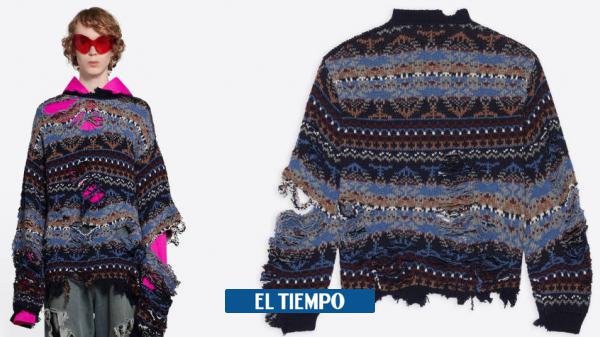
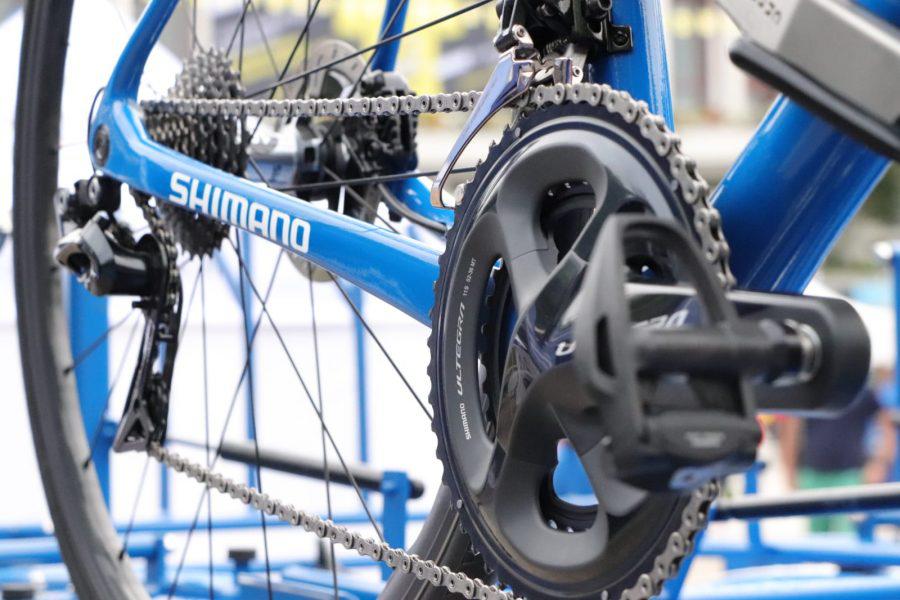

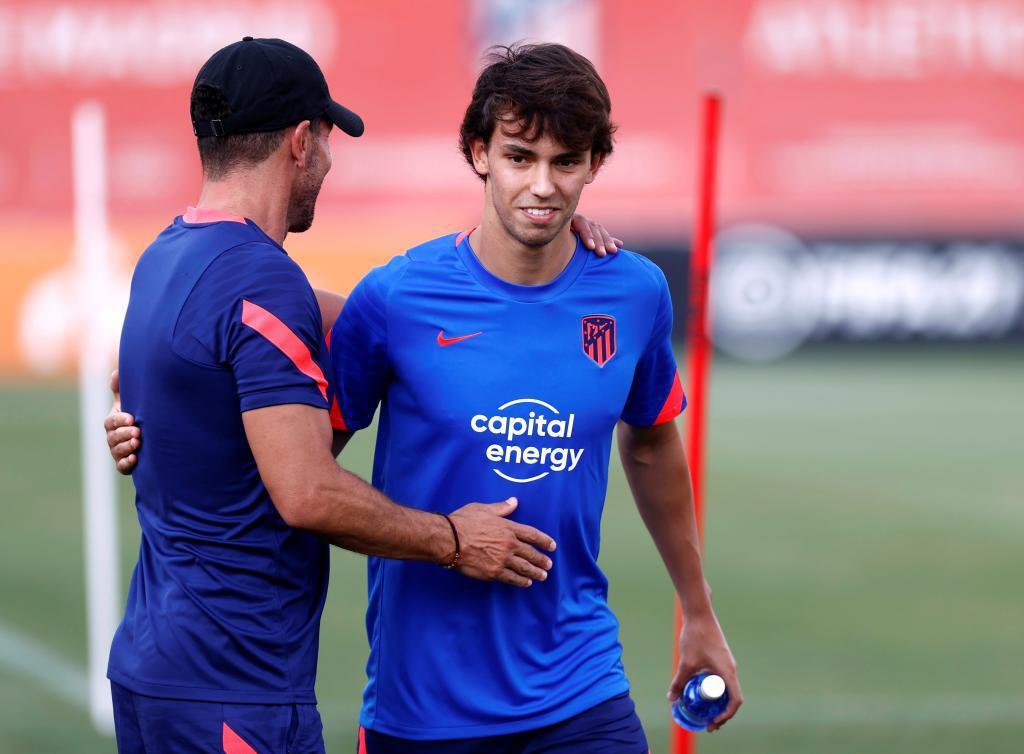

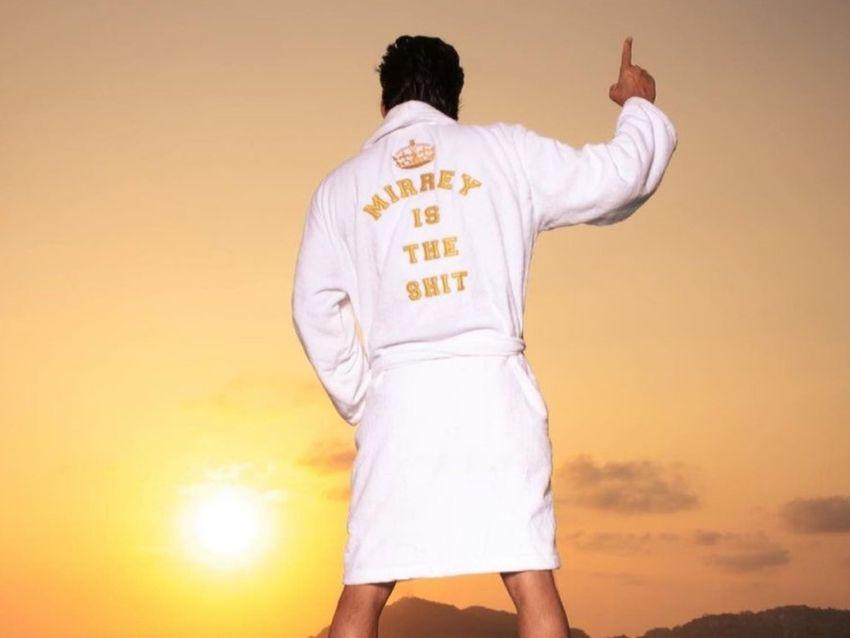
'The ambassador's daughter': everything about the premiere of the Nova series
18/03/2022A girl named Melek arrives in her living room and finds a dead man. Her mother, in the bathroom, cleans the blood from her clothes and her face, in addition, she keeps a knife along with the rest of the things in ...